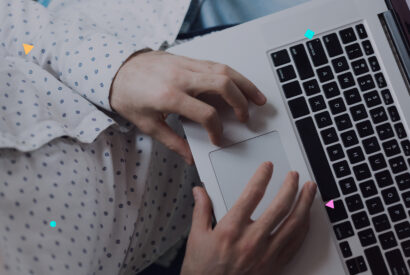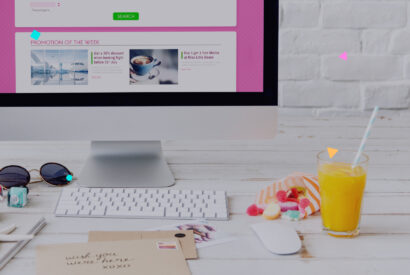Trends in web design this 2023

In a world where digital presence is key, web design trends can make or break a business. Are you keeping up with the latest trends in this field? In this article, we will look at some emerging trends, rising trends, and what’s expected for the future.
Tabla de contenidos
Emerging Trends
Responsive Web Design
In the era of smartphones, having a responsive web design is more of a necessity than a trend. This approach ensures that websites look and function well across a variety of devices, from desktop computers to smartphones.
Dark Web Design
Dark web design is not only pleasing to the eye, but it can also save energy on OLED screens. More and more websites and applications are adopting this trend.
Minimalist Design
Less is more. A clean, minimalist design can enhance the user experience by making navigation easier and putting the content front and center.
3D Graphics
As technology advances, so do the possibilities for web design. 3D graphics can provide a more immersive and engaging user experience.
Rising Trends
Artificial Intelligence
From chatbots to machine learning, artificial intelligence is changing the way we interact with websites.
Accessible Web Design
Ensuring that websites are accessible to everyone, including those with disabilities, is a rising trend and a necessity.
Micro-animations
Micro-animations can enhance the user experience by providing feedback and guiding users through the site.
Future Trends
Augmented Reality and Virtual Reality
As AR and VR technology become more accessible, we expect to see more of these features in web design.
Voice Interface
Voice search is becoming more common, leading to a greater focus on voice interface design.
Interaction Design
Interaction design will continue to evolve to create richer and more personalized user experiences.
Conclusion
Web design trends are always evolving, driven by technological advances and changing user expectations. Keeping up with these trends can give your website a competitive edge and ensure that it meets the needs and expectations of your users.
Frequently Asked Questions
What is responsive web design?
Responsive web design is a design approach that allows a website’s content to automatically resize and rearrange to fit the device’s screen it is being viewed on. This ensures that users have an optimal experience whether they are viewing the site on a desktop computer, laptop, tablet, or mobile phone.
How can dark web design save energy?
Dark web design can help save energy on devices with OLED or AMOLED screens. These screens illuminate each pixel individually, meaning that dark or black pixels require less energy to light up than white or light pixels.
How is artificial intelligence changing the interaction with websites?
Artificial intelligence (AI) is reshaping interaction with websites in several ways. For example, AI-based chatbots can provide 24/7 customer support, answering frequently asked questions and solving issues autonomously. Plus, AI algorithms can analyze user behavior to customize the website experience and make recommendations based on the user’s preferences.
What are micro-animations and how do they enhance the user experience?
Micro-animations are small, subtle animations that occur as a result of a user action. For example, a button that changes color when the cursor is hovered over it is a micro-animation. These animations can enhance the user experience by providing visual feedback, guiding users through actions and transitions, and making the interface feel more dynamic and engaging.
How can augmented reality and virtual reality influence web design in the future?
Augmented reality (AR) and virtual reality (VR) can transform the way we interact with websites. Instead of viewing information on a flat screen, AR and VR could enable more immersive and three-dimensional web experiences. For instance, an e-commerce store could let you “try out” furniture in your own home using AR, or explore a 360-degree virtual space using VR.
What are the styles of graphic design?
Minimalist Design: Focuses on simplicity and the essentials.
Typographic Design: Uses typography as the main element.
Grunge Design: Characterized by its ‘dirty’ and messy appearance.
What is Glasomorphism? Glasomorphism is a design trend that simulates a ‘frosted’ or ‘blown glass’ effect on interface elements, offering a sense of depth through the use of transparencies and blurred colors.


